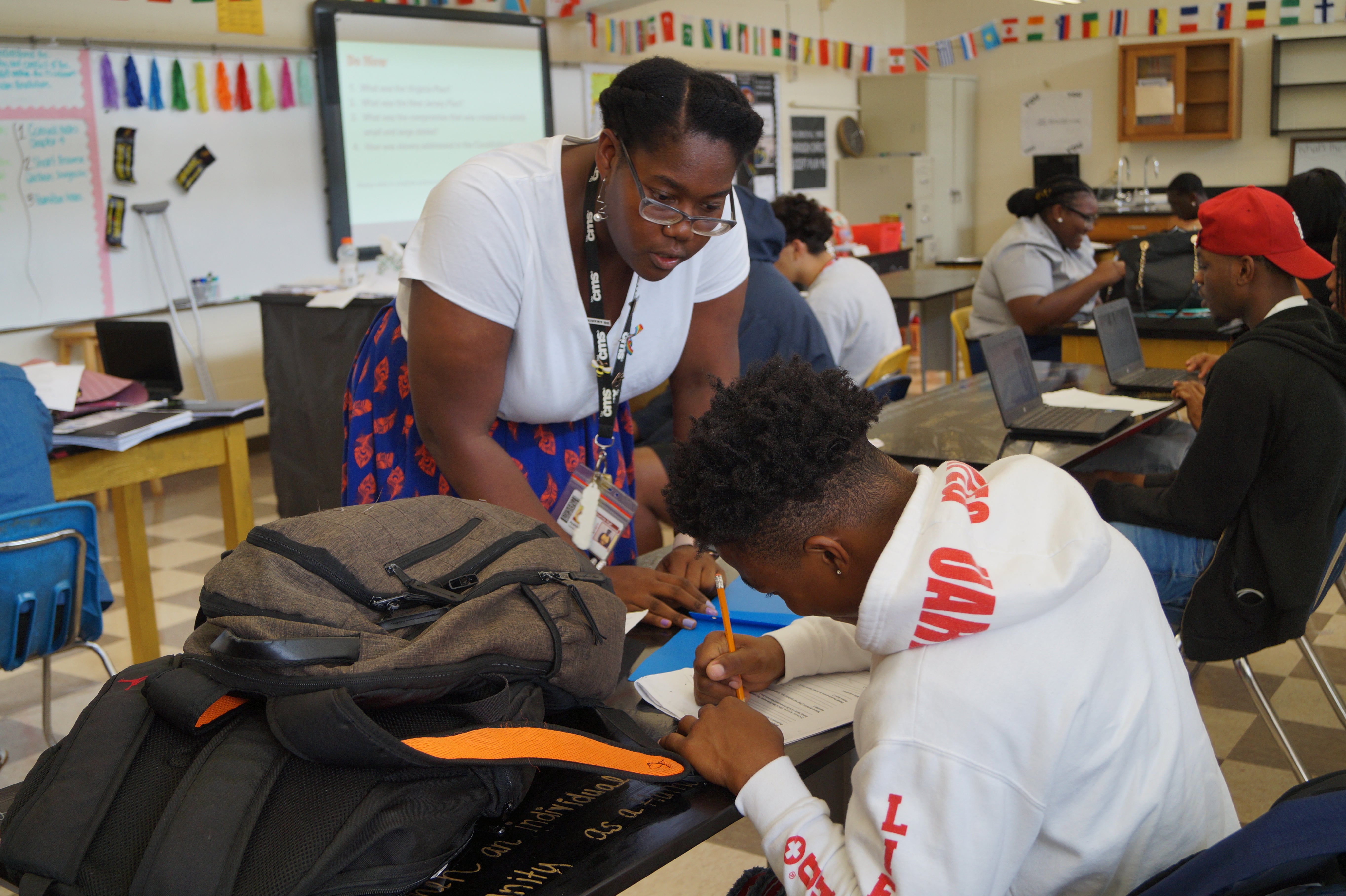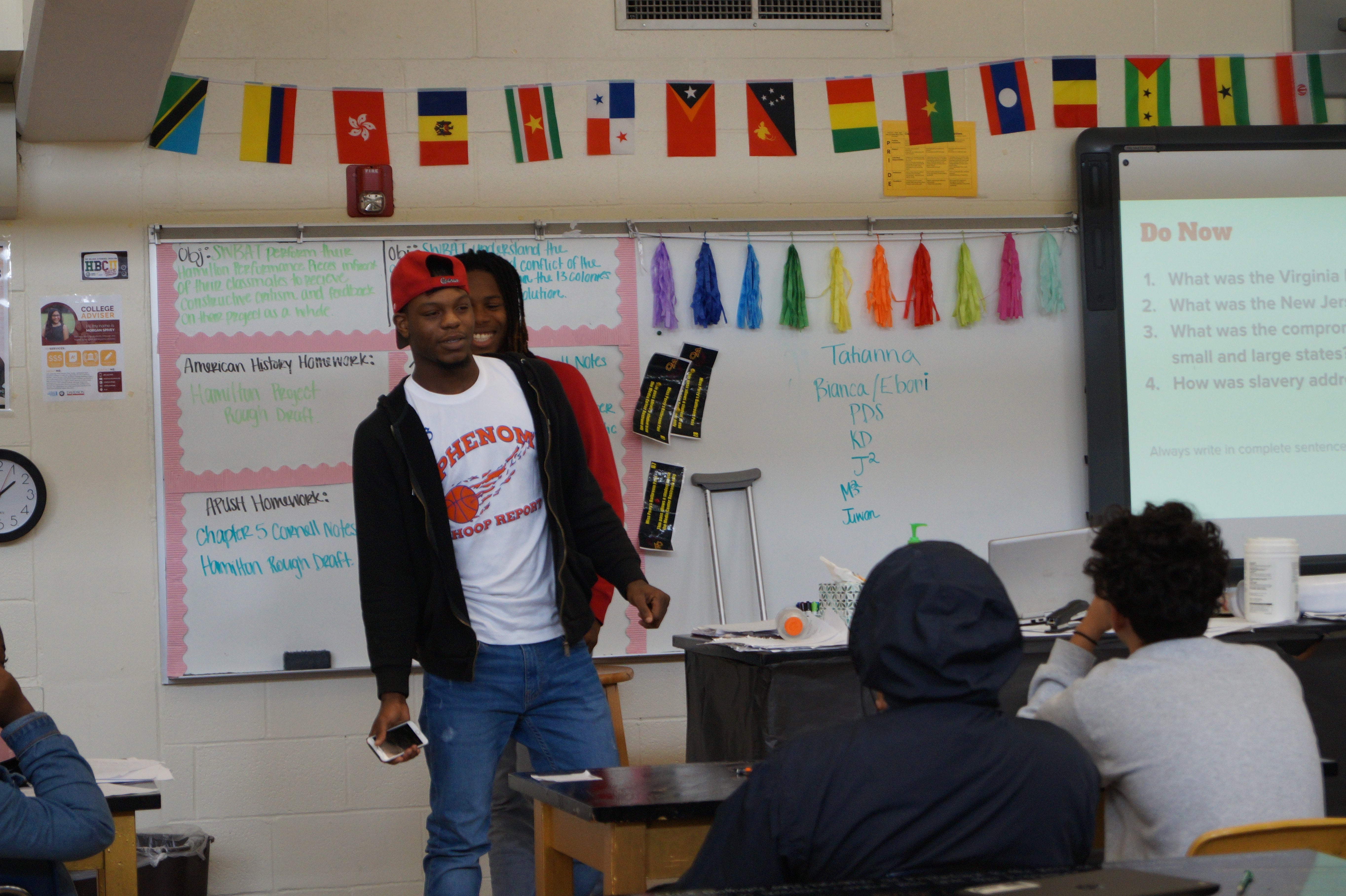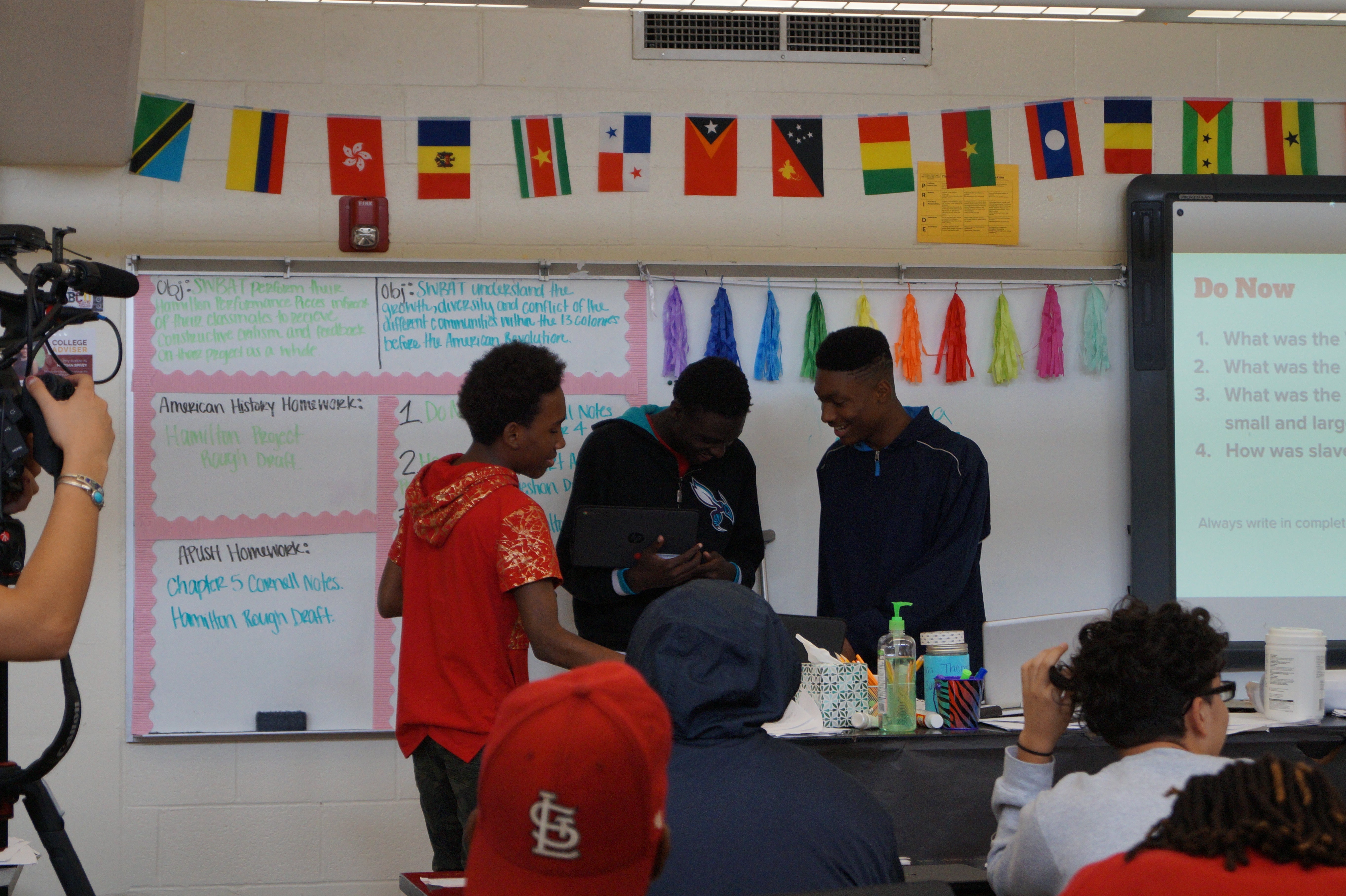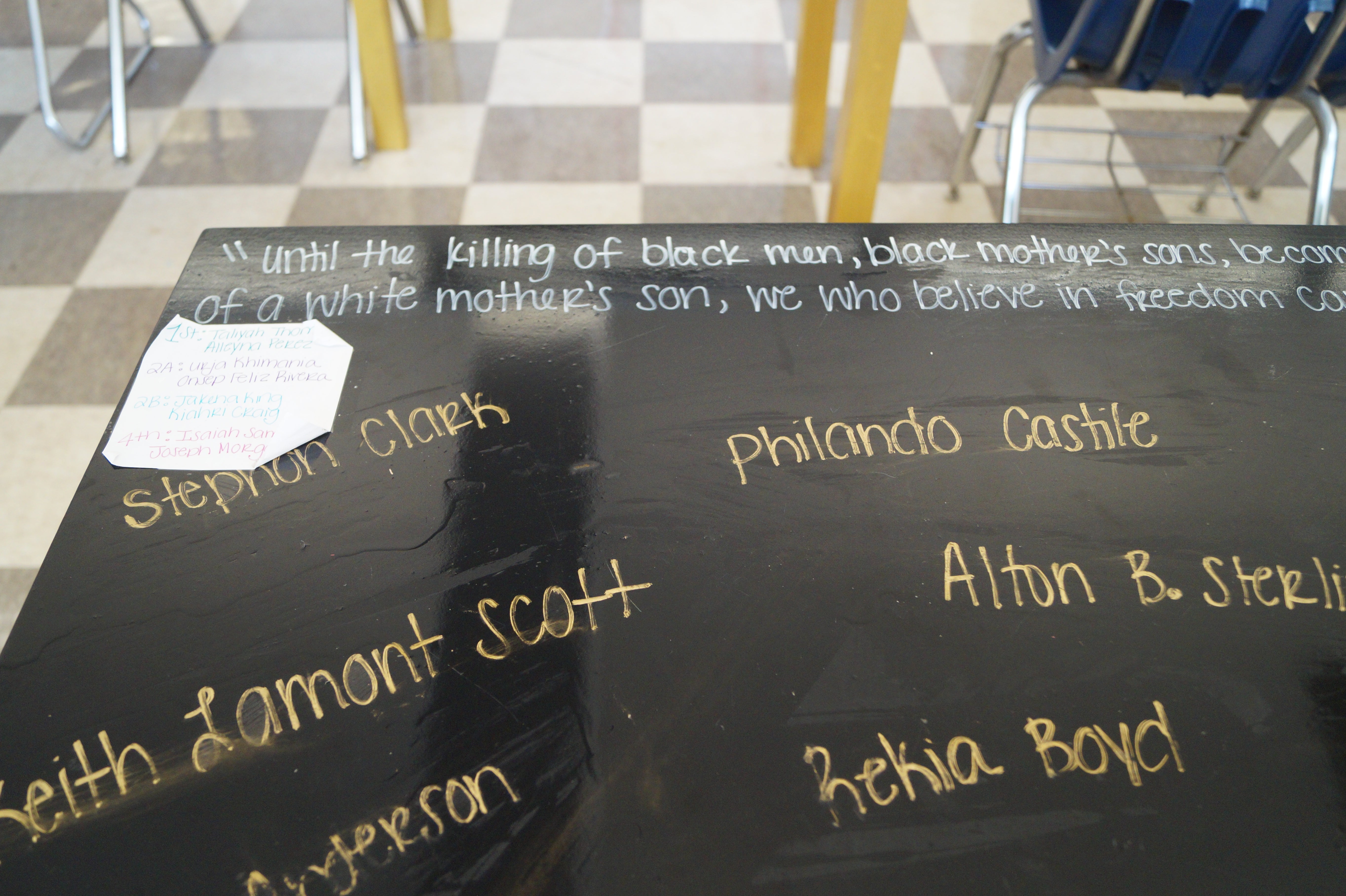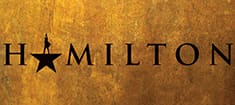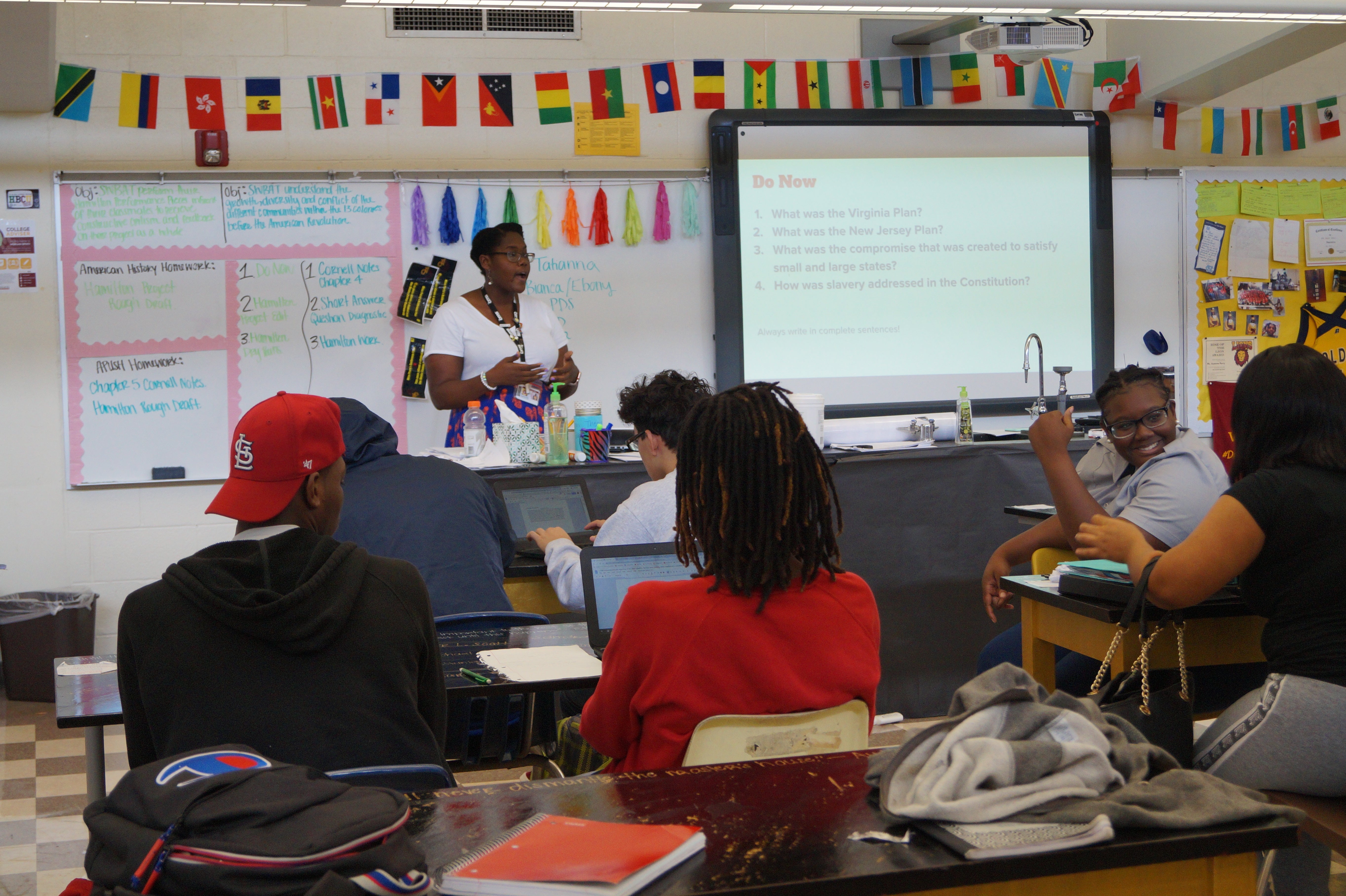
Want to be “in the room where it happens”? Last week one of those rooms was at West Charlotte High School, where history teacher Ayanna Perry’s students were busy putting the final touches on their original spoken word pieces for the HAMILTON Education Project (a.k.a. Eduham).
This is the second story in a three-part series following West Charlotte, one of 25 Title I public schools in the region, participating in an innovative program combining history and the performing arts. Eduham culminates in a trip to Blumenthal’s Belk Theater in early November to see the Tony Award-winning HAMILTON for just $10 (or “a Hamilton”) per ticket.
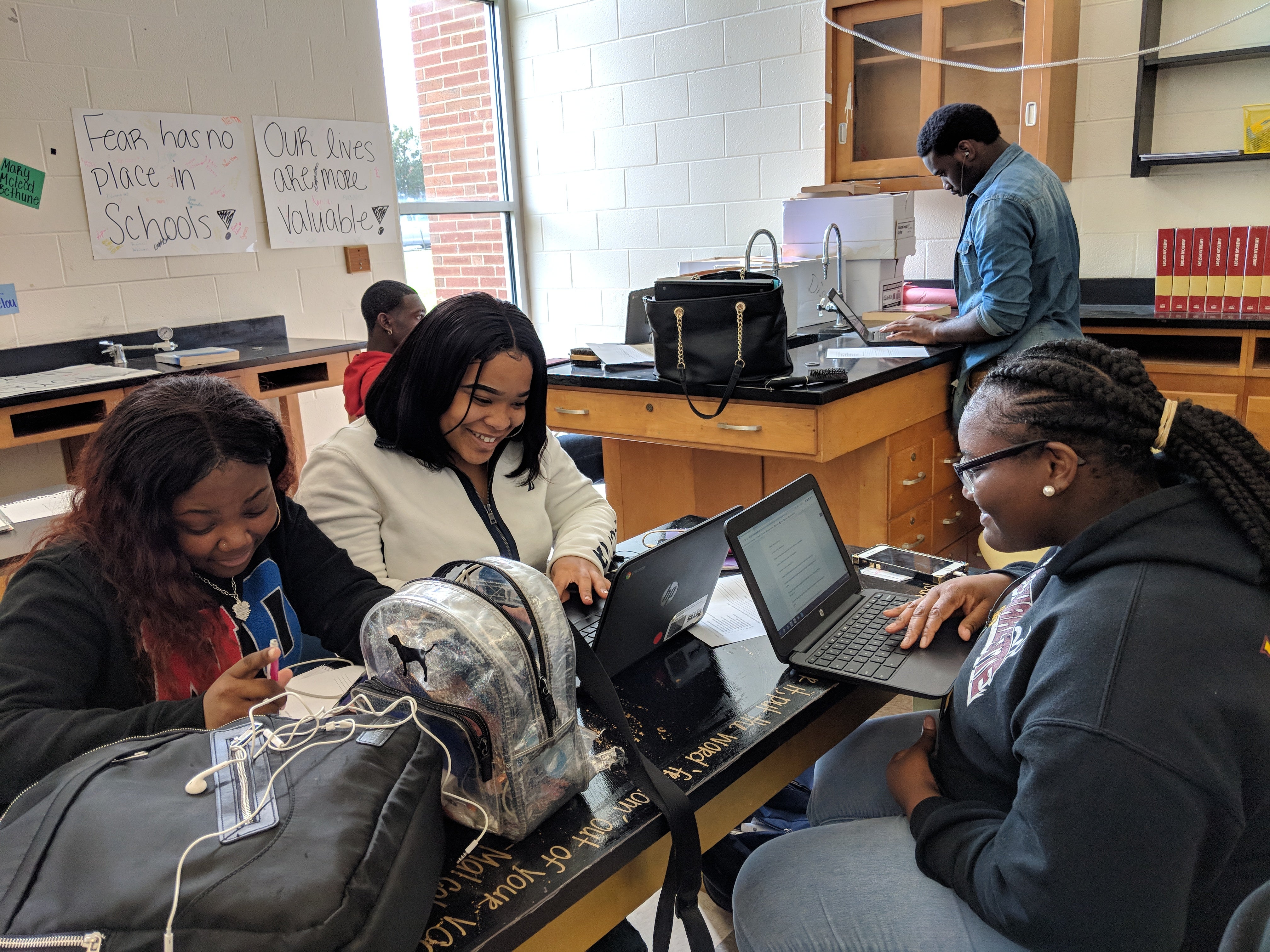
Through the program, developed by the Gilder Lehrman Institute for American History, the producers of HAMILTON and playwright/composer Lin Manuel Miranda, students explore the people and events that shaped the American Revolution. They also emulate the process Miranda used to create his landmark musical. Each school submits its top student creation to the Gilder Lehrman Institute for consideration and one lucky performer (or group of performers) will present this original piece live at Belk Theater prior to the special student matinee.
FINDING WAYS TO CONNECT WITH THE PAST
As students develop their own two-minute performance pieces, they are challenged to interpret and connect with the material in different ways than they would for a typical research paper.
They can choose to create any kind of spoken word piece—including monologues, poems, raps, songs or short scenes. Through the process, many students are making the surprising discovery that they can actually relate to people and their struggles from 250 years ago.
“A lot of kids didn’t think they could identify with the Founding Fathers,” says Perry, who is in her second year teaching at West Charlotte. Part of the challenge, she explains, is that nearly all the founders were white men and the majority of her students are young men and women of color.
But the historical figure Alexander Hamilton has caught their attention (and hopefully the musical will too—with its groundbreaking vision of a multi-ethnic cast telling his story via Miranda’s genius lyrics and a hip-hop score). For many students, this is the first time they are learning in detail about this founder, his writings and important role in creating a national bank. Most of all, they are intrigued by the dramatic details of his personal story: from growing up an orphan and becoming an immigrant to his love life and scandals, not to mention his death by duel.
One of the students, Tatiana, says she empathizes with some of the challenges Hamilton experienced as a child and was inspired to write a poem about his life story, punctuated with the refrain “Poor Alexander” throughout. “He had to do so many things that a normal kid shouldn’t have to do,” says Tatiana. “I think he grew up too fast.”
For classmate Isaiah, a junior, the project took the form of an imagined conversation between Alexander Hamilton and his wife Eliza behind closed doors. He and his partner based it on original letters and other background information they discovered through their research but tried to incorporate modern language into their scene. “It was actually really fun,” says Isaiah, who has previously participated in some theatrical projects at his church but never at school.
While some students focus their projects on well-known historical figures like Paul Revere and Thomas Paine, others explore topics they have not learned about before. For example, three young women decide to create a poem about Phillis Wheatley, the first African-American woman to publish a book of poetry. “It’s something new,” says Diamond, a junior, “about an African-American lady that I never knew about.”
THE THRILLS AND CHILLS OF PERFORMING
Through this experience, students can be creative and show off their artistic talents. “A lot of them have different musical talents or gifts that they wouldn’t be able to use [ordinarily] in history class,” says Perry.
That can be both thrilling and terrifying for students. “I don’t think we’ve gotten to the most challenging part yet,” says Adasi, a junior, who is busy researching and writing. She has only been on stage one time in her life—for her 8th grade graduation.
For Tatiana, who loves to write, this project is pushing her to take new risks. She volunteers to present her project first. “I was nervous because usually I don’t show people my poems,” she says. “[But afterwards] I was kind of happy and I was proud of myself.”
Meanwhile, Maurice, a member of the drama club, says his prior acting experience helps him overcome his performance jitters. He looks confident in front of the class as he assumes a British accent for a witty monologue portraying King George III.
In Eduham, the creative process is as important as the finished product. This is a new experience for many students, and it is exciting to see kids trying, learning by doing and working to overcome their fears. While some students fidget, speak quietly, or grip their notes tightly so they can read their lines, others relish being in the spotlight. One young man’s face lights up as he begins his performance—a notable change from the day before when he complained about writing poetry because he thought he was no good at it.
The experience also helps students learn how to regroup and try again when things don’t go as expected. That’s what happens when three young men start their rap about the Boston Massacre, set to the beat of the Lil Baby song “Freestyle.” A promising beginning: “Boston. Boston. Boston,” they intone and then… they burst into laughter.
Their teacher reassures them: “It’s ok. Sometimes we gotta try one more time.”
So they do.
And again, someone goes off beat and there is uncontrollable laughter.
“Ok, third time’s the charm!” says Perry.
The three young men give it one more try and it finally comes together, as they sing: “Nobody said you’re just a bullet away...”
Perry seems pleased with their work, even if they had some trouble catching the beat at first. “It was good,” she says. “The lyrics were great!”
Their persistence and her encouragement pay off. Nobody is throwing away their shot under Ms. Perry’s watch.
